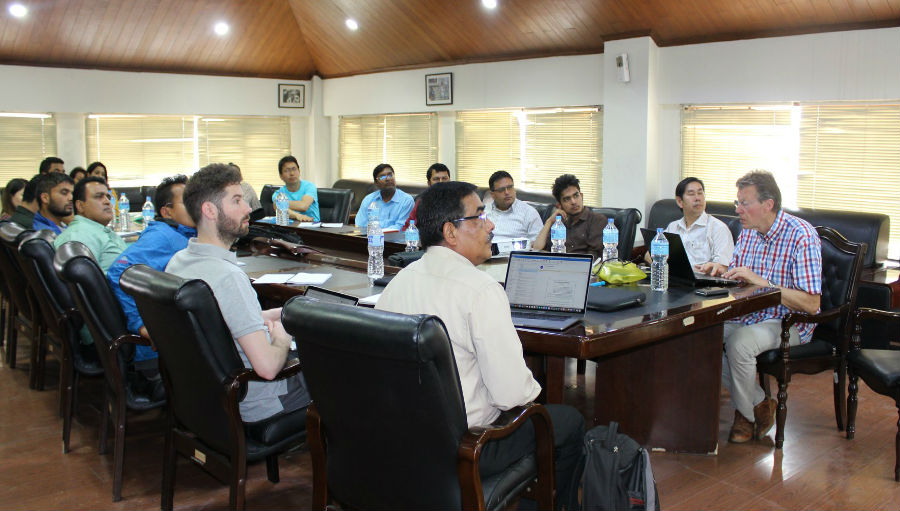Join a powerful, unprecedented alliance for better eye health for all.
Join IAPB-
Choose an alternate language here

The RAAB survey methodology gets updated regularly. In 2014 the RAAB 5 version was current, which soon became RAAB 6. Every version requires some additional training, and with that, I was soon able to adopt the latest version.
We now have RAAB7–all digital and paperless. Peek Vision and the International Centre for Eye Health (ICEH), London School of Hygiene and Tropical Medicine have led on this upgrade. The application can be downloaded on android-supported devices such as smartphone and tablets for data collection. The survey team has an option for data collection entry and checking consistency. Data collection can be performed offline and once an internet connection is available it can be uploaded to a cloud-based server. Once it is uploaded, the survey team will not have any access to the server for modifications; only the supervisor and trainer do. If they note any inconsistencies, they can fix them after consulting with the survey team. The app has options for both RAAB+DR and the standard RAAB survey. In RAAB 6, the Inter-Observer Variation (IOV) test required manual data entry and report generation. Now, the (IOV) test measurement also directly goes to the server, making the result more reliable. The app also has an option to track the location of the survey team. This is especially useful in rural clusters to monitor whether the data collection team has reached the survey area or not. The trainer and supervisor can see the progress of data collection from their desk by logging in through the server.
I am delighted and honoured to be the first person from South East Asia to be trained in RAAB 7. Hans Limburg, who conceptualized RAAB surveys and is involved in its regular upgrades, travelled all the way to Nepal to train me. I am very grateful to him, and to SEVA Foundation/USA, Eye Care Foundation, Netherlands and ICEH for supporting this training. Thank you so much for your generous help– Dhanyavaad!